Brussels City Theater - Public Utility Foundation - SEASON 2019-2020
MRS MISS MR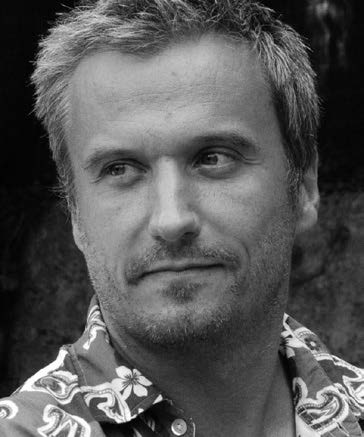
We have a tradition at the Théâtre Royal du Parc: each year, at the same period, the director comes to tell us about the next season.
My pleasure in working in this beautiful place remains whole and it is largely thanks to your enthusiasm.
This season, the first four shows were very successful, gathering more than 41,056 spectators.
Thank you for your loyalty.
You will find in our season brochure all the information concerning the shows that you will discover in 2020-2021.
I will have the pleasure of directing The Knights of the Round Table, with a team of more than fifteen actors; Daphné D’Heur who had enchanted us with his staging of the Chevalier d'Eon, will invite you to attend rehearsals in September 1791 of Mozart's last opera, An enchanted flute.
The show Notre D (r) ame which we will have the immense honor of creating in Paris at the Tristan Bernard Theater, will arrive in our house in January 2021.
Patrice Mincke will find the wonderful actor Guy Pion who will play this time Arnolphe in L’école des femmes.
And finally, we will find the incredible Othmane Moumen who will slip this time in the skin of Arsène Lupine under the direction of Thibaut Nève.
And as a resumption for the holidays, we offer you Le Noël de M. Scrooge who has not finished enchanting us.
But let's go back to this season.
The show you are about to discover is the first staging of Alain Leempoel in our theater.
After his magnificent Festen in September 2018, this time he revisits Musset’s masterpiece.
I wish you a wonderful evening and thank you again for your loyalty.
Thierry Debroux.

A WORD FROM THE DIRECTOR
FROM 19TH CENTURY ROMANTISM TO TODAY'S DIFFICULT LIVING
Les caprices de Marianne is the story of a youth shattering over its century, over its idleness.
This piece by Alfred de Musset is unclassifiable: Comedy? Drama? Tragedy?
It takes drama by the social classes represented; comedy by some of his colorful characters, by his lively actions and his language, sometimes close to conversation; of the tragedy, finally, by the inexorable advance towards the death of the character of Coelio as well as by the topics approached.
Musset takes the mysterious pulse of this strange fever which seizes an orphan generation of all combat, of all engagement, which seeks in cynicism, sensuality, easy pleasure, or melancholic fanaticism, its salvation is ie an arrangement with life.
Les caprices de Marianne is a great incandescent work of French romanticism.
And the heroes of this fable, gone for a comedy, respond to the drama.
This piece is, today as always, the cry, the dazzling outburst of a youth against their lifestyle.
The play was written in Paris in 1833, set against an imaginary Naples.
The show will take place in 1930 against the backdrop of a very real Corsica.
The beginning of the 20th century was for Corsica a period of great social upheavals and the interwar period saw a massive exodus of local mafiosi wanting to establish their power in the metropolis in Marseilles and Paris mainly.
Those who stayed on the island may have been left behind by this archaic society, and it is with them that we will be interested.
The Corsican soul, so well described by Robert Colonna D’Istria, is what I tried to instill in the characters in the play:
In these closed worlds, the islands, and in these islands of the islands which are the small territories where one is confined, one dreams.
To escape.
To create imaginary lands.
To erase the constraints of the sea, its negative aspects, this sea that separates and engulfs.
To escape.
So that the island, which protects and reassures, constitutes a familiar environment, is no longer an oppressive, limited space which traps.
What could be better, in all, than dreams?
Before being an instrument of communication, or a means of revealing what is deep inside, a dream is a creative activity, producing beauty, at least producing something other than what is on hand.
To dream is to create a rewarding universe, beautiful images, pleasant companies, it is a way of escaping reality, a fortiori when we consider it heavy, insufficient, weak ... Imagine a world different from his is probably one of the primary needs of man.
If the play appeared in May 1833 in the Revue des Deux Mondes, it was not created by the Comédie Française until June 1851, with many changes imposed by censorship at the time.
We have drawn a few replicas or scenes there that it seemed interesting to us to restore.
So you will almost see a new or even new version…
Alain LEEMPOEL
THE CAPRICES OF MARIANNE
by Alfred de Musset 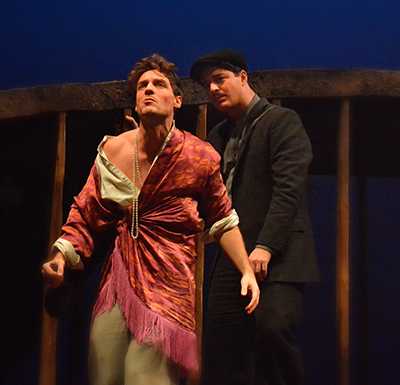
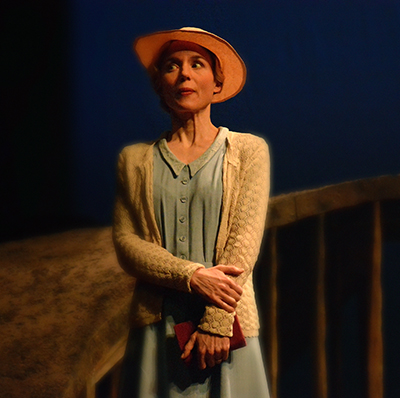
SEASON 2019-2020
4th show
FROM MARCH 5 TO APRIL 4, 2020
(27 performances)
A co-production of the Théâtre Royal du Parc, La Coop asbl and Shelter Prod.
With the support of Taxshelter.be, ING and the Tax Shelter of the Belgian Federal Government.
The Théâtre Royal du Parc is subsidized by:
the Alderman for Culture of the City of Brussels
and the Wallonia-Brussels Federation - Direction du Théâtre
OUR NEXT SHOW 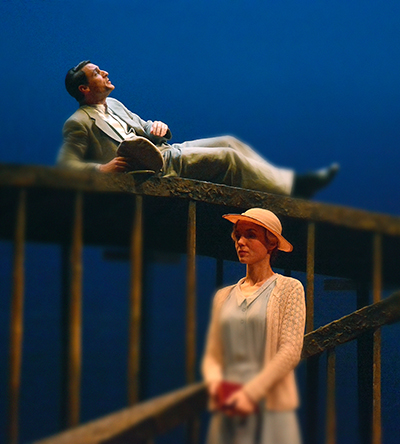
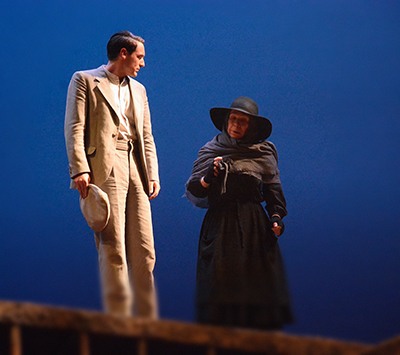 23.04 23.05.2020 23.04 23.05.2020
"A DOLL HOUSE"
according to Henrik Ibsen
With
Anouchka VINGTIER Thierry DEBROUX Catherine GROSJEAN Philippe JEUSETTE
Daniel NICODEM Jacqueline NICOLAS
and children Ava DEBROUX Selma JONES or Laetitia JOUS
Lily DEBROUX Eledwen JANSSEN or Jannah TOURNAY
Stage direction: Ladislas CHOLLAT
Assistantship: Catherine COUCHARD
Scenography: Thibaut DE COSTER and Charly KLEINERMANN
Costumes: Jackye FAUCONNIER
Lights: Alban SAUVÉ
Original music: Frédéric NOREL
Make-up and hairstyles: Florence JASSELETTE
Ladislas Chollat gives us the pleasure of returning to work in Belgium.
After Kennedy, this director, several times awarded Molières, had long wanted to edit this wonderful and always disturbing text by Ibsen and will find actress Anouchka Vingtier to play the character of Nora.
At a time when we are still talking about the glaring inequalities in wages between men and women, this play reminds us of the long road to the emancipation of the so-called "weak" sex. From 14 years old.
|





